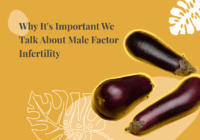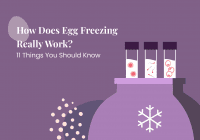
The sun is out and the birds are singing. That means it must be Pride Month! There’s no better time to talk about LGBTQ+ fertility treatments. According to Statistics Canada, from 2001 to 2016, the number of same-sex couples with children increased from 8.6% to 12%. The more we can spread the word about safe and effective fertility treatments, the more that number will continue to rise.
At Dr. Tanya Williams Fertility Centre, we believe that everyone has the right to build a family. Moreover, we understand that some couples have more challenges to face than others. For LGBTQ+ couples, physiological hurdles do exist, but they aren’t impossible to overcome. You have options and support.
That’s why our clinic provides specialized services for same-sex, non-binary, and transgender partners through Assisted Human Reproduction (AHR). Depending on your relationship, there a few options to consider. Therefore, we’ll discuss those options in the article below.
What is LGBTQ+ Fertility?
LGBTQ+ fertility applies to same-sex, non-binary, and transgender couples that want to have a child. Canada’s Assisted Human Reproduction Act protects LGBTQ+ couples seeking treatments at private clinics, such as our clinic in North York. At our fertility centre and others across the country, you can explore the methods of conceiving children that offer the best chances of success.
What are the Types of LGBTQ+ Fertility Treatments?
Intrauterine Insemination (IUI): Also known as artificial insemination, IUI involves using sperm from a donor, known or anonymous. Women and persons with female biology can use intrauterine insemination to fertilize their own eggs. Often, the procedure is followed up with fertility medications to increase the rate of conception. As well, gay men can also use IUI with a surrogate.
Surrogacy: With this process, gestational carriers, or a woman contracted to carry the pregnancy, helps bring the baby to term. Females can use their own eggs. Males must seek an egg donor. Using a gestational carrier is quite common with same-sex male couples.
In Vitro Fertilization (IVF): This is a multi-step process that begins with the harvesting of healthy eggs and continues through to embryo development and implantation. Same-sex female couples choose IVF so each parent can be involved — one to harvest the egg and one to carry the child to term. Same-sex male couples choose IVF with their gestational carrier.
Cryopreservation: Freezing eggs or sperm is one of the most common fertility treatments offered by fertility clinics. It involves extracting reproductive cells, then placing them in sub-zero temperature storage. The process allows patients to store healthy reproductive cells for later use.
What Should Those Seeking LGBTQ+ Fertility Know?
One of the amazing things about starting your fertility journey is that it’s unique to you. While this opens up many possibilities, the options can be overwhelming. To help you navigate these new can exciting waters, we’ve broken it down.
Same-Sex Male Family Building
First, surrogacy will play a vital role in same-sex male fertility treatments. Your gestational carrier can be someone you know or an individual you hire. Moreover, you’ll need to decide who will donate sperm to fertilize the egg.
Often, both partners donate and save the healthy remaining sperm for the future. As well, don’t forget that you’ll also need to discuss who will donate the egg. It’s totally up to you where you source the egg – a friend, family member, or donor.
Same-Sex Female Family Building
Intrauterine Insemination and In Vitro Fertilization are the most common fertility treatments for same-sex female couples. One partner must carry the baby, but it’s not uncommon for the other partner to donate the egg. Mandatory fertility screening can help you make that decision easier.
As well, another question to keep in mind is who will donate the sperm. Donor sperm is a popular option, but some couples choose a friend instead.
Non-Binary & Transgender Family Building
For transgender and non-binary couples, the treatment methods vary on a case-by-case basis. For instance, cryopreservation, gestational carriers, IVF and IUI can all be used, depending on how far along the couple are with hormone and transitional therapies.
However, in most cases, hormone therapy must be paused while pursuing fertility treatments. It’s best to book an appointment with our clinic to go over the specifics of your case.
Emotional Support During LGBTQ+ Fertility
It’s normal to feel emotionally stressed and overwhelmed during the fertility screening and treatment process. Just know that you aren’t alone. Many couples have been through what you’re going through, and there are support systems in place to help.
Whether a psychologist or social worker, these professionals can offer advice and strategies to deal with the emotional burden you and your partner plan to take on while exploring LGBTQ+ fertility options.
LGBTQ+ Fertility & Parenting Support Groups
Support groups are usually small, with no more than six to ten people. They’re filled with people that are going through their own fertility journey. You can find a list of LGBTQ+ support groups here.
Friends and Family
Sometimes, having a friend or family member to talk to can make a big difference. Therefore, make sure to set time aside to connect with your loved ones. Voicing thoughts and concerns can give you the strength to continue on your fertility journey.
What Is the Cost of LGBTQ+ Pregnancy in Canada?
Because fertility treatments and strategies can vary from couple to couple, the price of LGBTQ+ pregnancy is patient-specific.
Therefore, know that most LGBTQ+ fertility treatments are not covered by the government. So gestational surrogacy, cryopreservation, IVF, and IUI would be out of pocket.
To find out more information about LBGTQ+ fertility treatments in Ontario, contact Dr. Tanya Williams Fertility Centre today.
Error: No connected account.
Please go to the Instagram Feed settings page to connect an account.
Discover more related blogs from Dr. Tanya Williams Fertility Centre:






